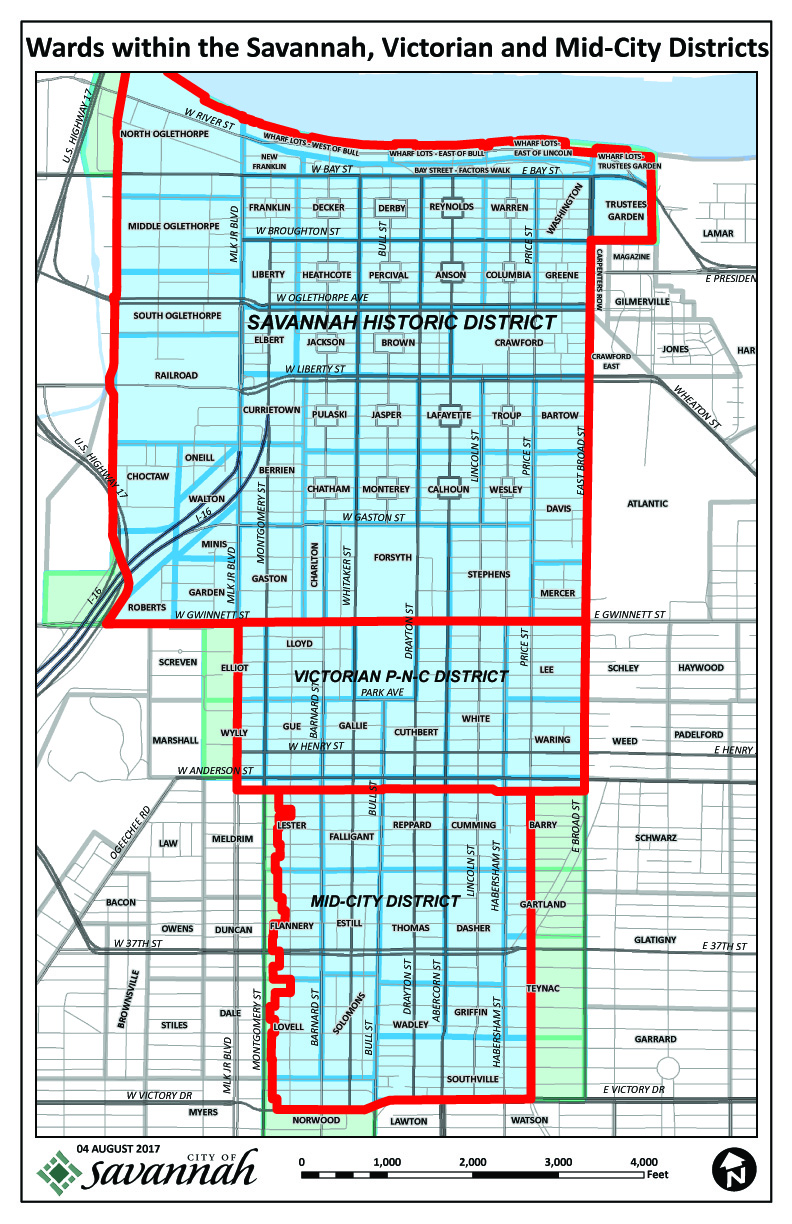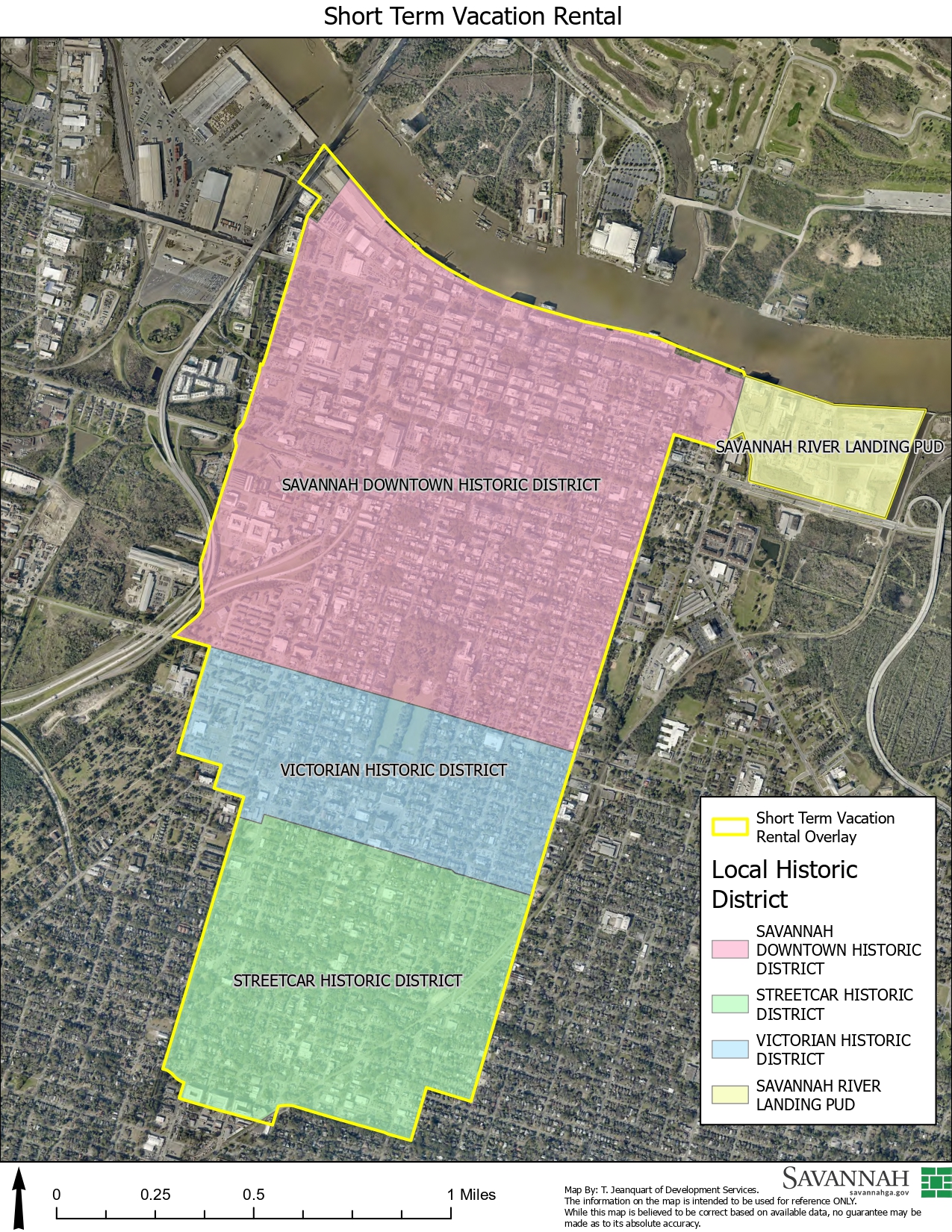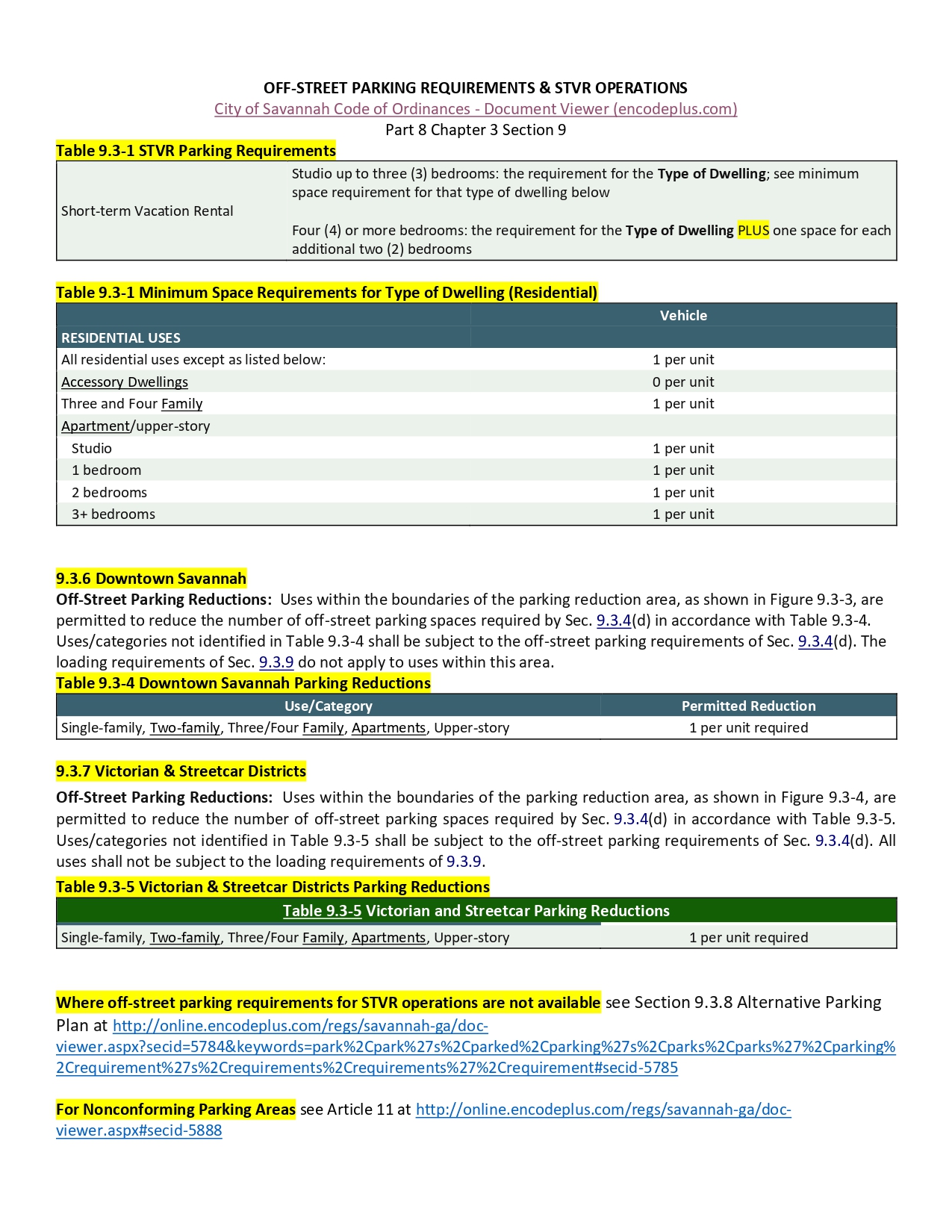Understanding Short-Term Vacation Rentals in Savannah, Georgia: Everything You Need to Know
Genuinely, it is wild to me how little people know about this subject as if it is taboo in Savannah, but look no further, as I have done all the research for you! Savannah, Georgia, has become a hotspot for short-term rental (STVR) investments, thanks to its rich history, charming architecture, and vibrant tourism. However, navigating the short-term rental landscape in Savannah is no simple task. With strict zoning regulations and a highly competitive permitting process, understanding the rules and nuances is crucial for property owners and investors. This guide dives into everything you need to know about short-term rentals in Savannah, including zoning restrictions, permit types, and key considerations for investors.
Key Takeaways
Short-Term Vacation Rentals Are Restricted to Specific Districts:
- Short-term rentals are only allowed in the Historic, Victorian, and Streetcar Districts in Savannah.
- The Streetcar District permits only owner-occupied STVRs, while the Historic and Victorian Districts allow non-owner-occupied STVRs, though permits are nearly maxed out in most wards.
Non-Owner-Occupied Permits Are Valuable:
- With permit caps in place, homes with existing non-owner-occupied permits hold significant investment value. New permits often come with long waitlists or are unavailable in many areas.
31-Day Rentals Provide Flexibility:
- Rentals of 31 days or longer do not require STVR permits and are allowed citywide, providing an alternative for property owners and investors outside designated STVR zones.
Building ADUs Requires Careful Planning:
- Constructing an ADU in Savannah, especially in historic districts, involves meeting strict guidelines and adhering to size and layout limitations. ADUs can be a great addition for generating rental income but require thoughtful execution.
Savannah’s STVR Market Is Highly Profitable:
- Limited hotel space, strict permit caps, and strong tourism demand drive high returns for STVR properties, particularly in downtown Savannah.
Work With Experts:
- Navigating Savannah’s complex STVR regulations is easier with the guidance of a local real estate agent who understands the market and zoning rules. Consider using Golden Homes in your Savannah Real Estate Market venture!
By understanding these key points, you can position yourself to make informed decisions about short-term rental investments in Savannah’s unique and profitable market.
Where Are Short-Term Rentals Allowed in Savannah?
Short-term rentals in Savannah are restricted to specific areas within the city. Currently, STVRs are allowed in the following districts:
- Historic District
- Victorian District
- Streetcar District
Each district has unique zoning regulations and permit requirements, making it essential to understand what’s permissible in your desired area.

Streetcar District: Owner-Occupied STVR Permits Only
The Streetcar District, designated with TN-2 zoning, only allows owner-occupied short-term vacation rental permits. This means the owner must reside in the home full-time and year-round to legally operate a short-term rental. For investors, this restriction significantly limits opportunities for non-owner-occupied STRs in this area.
Historic and Victorian Districts: Non-Owner-Occupied STVR Permits
The Historic and Victorian Districts provide opportunities for non-owner-occupied short-term vacation rental permits, but these are highly coveted and tightly regulated.
- Limited Availability: The city has capped the number of non-owner-occupied STVR permits available in each ward within these districts.
- Waitlists: Many wards have already maxed out their quota for STVR permits, leaving potential applicants on a waitlist that could span 2 years, 10 years, or even indefinitely.
- Investment Value: Homes with an existing non-owner-occupied STVR permit are exceptionally valuable. For investors, purchasing a property with this permit is often the only feasible way to operate a short-term rental in these districts without living in the building.
For owner-occupied permits, both districts allow homeowners to operate an STVR from their primary residence. This option requires the owner to live on the property, providing flexibility for those who want to supplement their income while residing in Savannah’s most desirable neighborhoods.
Important Information About Short-Term Vacation Rental (STVR) Certificates
New STVR Registration Portal
The Short-Term Vacation Rental (STVR) Registration Portal is now live! For detailed information and answers about the new portal, visit the Q&A section online.
For New Property Owners of an Existing STVR Certificate
Under the STVR Ordinance, certificates (permits) are not automatically transferable to new property owners. If you purchase a property with an existing STVR certificate:
- You must submit a new application within six (6) months of the purchase.
- New owners cannot operate under the prior owner’s certificate.
- If there are existing reservations made by the previous owner, submit your STVR application immediately after closing to ensure compliance. Waiting until the six-month deadline could jeopardize the legality of operations.
Annual Renewal Requirements for Existing STVR Certificates
- STVR certificates are valid for one year and expire automatically.
- Renewals must be submitted at least 30 days before the certificate’s expiration date.
- A valid Business Tax Certificate (BTC) is required for the renewal process.
For renewals, visit the STVR Online Portal. To renew your BTC, check out the Business Tax Renewal page.
Ensure you stay updated on these requirements to maintain compliance with Savannah’s STVR regulations!

Other Helpful Information for Short-Term Vacation Rentals (STVR)
Determine Property Eligibility for STVR
To determine if a property qualifies for short-term vacation rental (STVR) operations:
- Confirm if the property is within the designated STVR boundaries.
- Identify the property’s historical zoning district.
- Review the specific STVR rules for that district, as outlined in the STVR Amended Ordinance.
Finding Historical Zoning Information
To locate a property’s historical zoning:
- Visit SAGIS Map Viewer.
- Click on the “Map Viewer” option.
- Select the “Map Layers” icon at the bottom of the screen.
- Turn on the “Historical Zoning” layer.
- Use the information to review zoning and STVR rules for the property.
- Properties with a Parcel Identification Number (PIN) starting with “2” fall under the City of Savannah jurisdiction.
- Properties with a PIN starting with “1” fall under Chatham County jurisdiction. Contact 912-201-4313 for Chatham County regulations.
- For PINs starting with other numbers, contact the respective city jurisdiction for specific rules.
For additional resources:
Mid-City/Streetcar Historic District (TN-2 Zoning District)
Properties in the TN-2 zoning district must adhere to the following rules:
- The property must include at least two dwelling units on a single PIN (e.g., a main house and a carriage house or a duplex).
- The property owner must permanently reside in the primary dwelling unit, and the second unit can qualify for an STVR permit.
- The property owner cannot be a business entity (e.g., LLC).
- The property must serve as the owner’s primary domicile.
- Proof of owner-occupancy must be submitted during the STVR application process.
For more details, refer to Mid-City/Streetcar Historic District Map.
Savannah Historic and Victorian Districts
STVR operations in the Historic District and Victorian District are subject to specific rules:
- Properties are capped at 20% per ward for non-owner-occupied STVR certificates.
- Owner-occupied certificates must meet the following criteria:
- The property owner cannot be a business entity (e.g., LLC).
- The property must be the owner’s primary residence.
- Proof of residency must be submitted with the application.
For more details, review the:
General STVR Rules and Zoning Overview
- STVR operations are only permitted within designated boundaries and are subject to district-specific rules.
- Properties in capped wards may require a waitlist for non-owner-occupied permits.
- Zoning district regulations differentiate between owner-occupied and non-owner-occupied STVR permits.
Refer to the amended STVR ordinance for detailed regulations, including 20% cap details and permit classifications.

Additional Challenges and Considerations
Building an Accessory Dwelling Unit (ADU)
If you’re considering building an ADU (Accessory Dwelling Unit) on your property to use as a short-term rental, be prepared to navigate a maze of stipulations and inspections, especially in historic districts:
- Size Restrictions: The maximum size for an ADU is typically a one-bedroom, one- or two-bath unit.
- Historic Guidelines: The ADU must meet strict architectural and historical guidelines to maintain the area’s aesthetic integrity.
- Inspections and Approvals: Multiple layers of inspections and permits are required to ensure compliance with local building codes and zoning regulations.
Income Potential of Savannah STVRs
Savannah’s short-term vacation rentals generate significant income, largely due to:
- Limited Hotels: The historic downtown area has a finite number of hotels, driving demand for alternative accommodations.
- Strict Permitting Process: The city’s cap on STVR permits ensures a controlled supply, which increases competition and income potential for legal STVR operators.
For example, a well-maintained property in the Historic District with a non-owner-occupied permit could generate high nightly rates due to its proximity to popular attractions like Forsyth Park and River Street.
Real-Life Scenario: Non-Owner-Occupied STVR Permits
Imagine purchasing a historic townhouse in the Victorian District. If the property includes a coveted non-owner-occupied STVR permit, you’ve instantly secured a lucrative investment. Without this permit, however, you’d likely face years of waiting on a list with no guarantee of approval.
Alternatively, if you live in a historic home with an owner-occupied permit, you can turn your extra rooms or ADU into a reliable income stream while enjoying the charm of Savannah’s iconic neighborhoods.
Tips for Investors and Property Owners
- Work with a Local Real Estate Expert: Navigating Savannah’s complex STVR regulations is easier with the guidance of an experienced local real estate agent who understands zoning, permits, and investment potential.
- Do Your Research: Before purchasing a property, confirm its zoning and permit status to ensure it aligns with your STVR goals.
- Plan for the Long Term: If you’re considering an area with a waitlist for permits, understand that this could be a long-term investment with delayed returns.
- Consider Owner-Occupied Options: If you’re open to living in the property, owner-occupied permits offer a more accessible way to break into the STVR market.
Final Thoughts
Short-term vacation rentals in Savannah are a fantastic opportunity, but the city’s strict regulations make it imperative to do your homework. Whether you’re an investor looking for a non-owner-occupied permit or a homeowner exploring owner-occupied options, understanding Savannah’s STVR landscape is key to making informed decisions.
By navigating these complexities and leveraging the unique value of properties with existing permits, you can capitalize on Savannah’s thriving tourism industry while enjoying the charm and beauty of this historic city.
All information as of 01/19/2025 - Please visit the Savannah Georgia website for more updated information as it comes available.
















